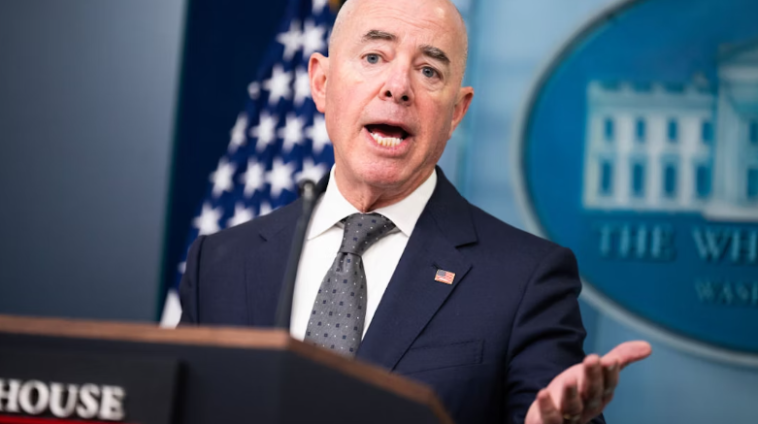In a recent interview, Secretary of Homeland Security Alejandro Mayorkas addressed concerns about the trafficking of unaccompanied migrant children entering the United States. He acknowledged awareness of such reports but stated that preventing these incidents falls outside the Department of Homeland Security’s (DHS) responsibilities.
Since the implementation of policies allowing unaccompanied alien children to enter the country, over half a million minors have been admitted, with approximately 120,000 arriving annually. Investigations have revealed that a significant number of these children cannot be located after placement with sponsors. The New York Times reported that one-third of these minors were untraceable 30 days post-placement.
Mayorkas suggested that some of these children might be deliberately evading contact, stating, “Individuals do not comply with the reporting obligations… I think it is inaccurate to say that all of them are trafficked or victimized.”
This perspective contrasts with findings from the DHS Office of Inspector General. In an August report, the Inspector General emphasized the need for immediate action to ensure the safety of unaccompanied children (UCs) in the U.S., highlighting that DHS lacked the capability to monitor their location and status, raising concerns about their vulnerability to trafficking and exploitation.
The process involves DHS transferring these children to the Department of Health and Human Services (HHS), which then places them with sponsors, often undocumented immigrants without familial ties to the minors. HHS Secretary Xavier Becerra has indicated that the department’s responsibility ends once the children are placed, stating, “Our responsibility is to provide care while they were in our custody.”
Critics argue that this system exposes children to significant risks, including forced labor and other forms of exploitation. Reports have surfaced of minors working in hazardous conditions or being subjected to abuse by sponsors.
The lack of clear accountability between DHS and HHS has prompted calls for comprehensive policy reforms to safeguard vulnerable migrant children and prevent their exploitation within the United States.


